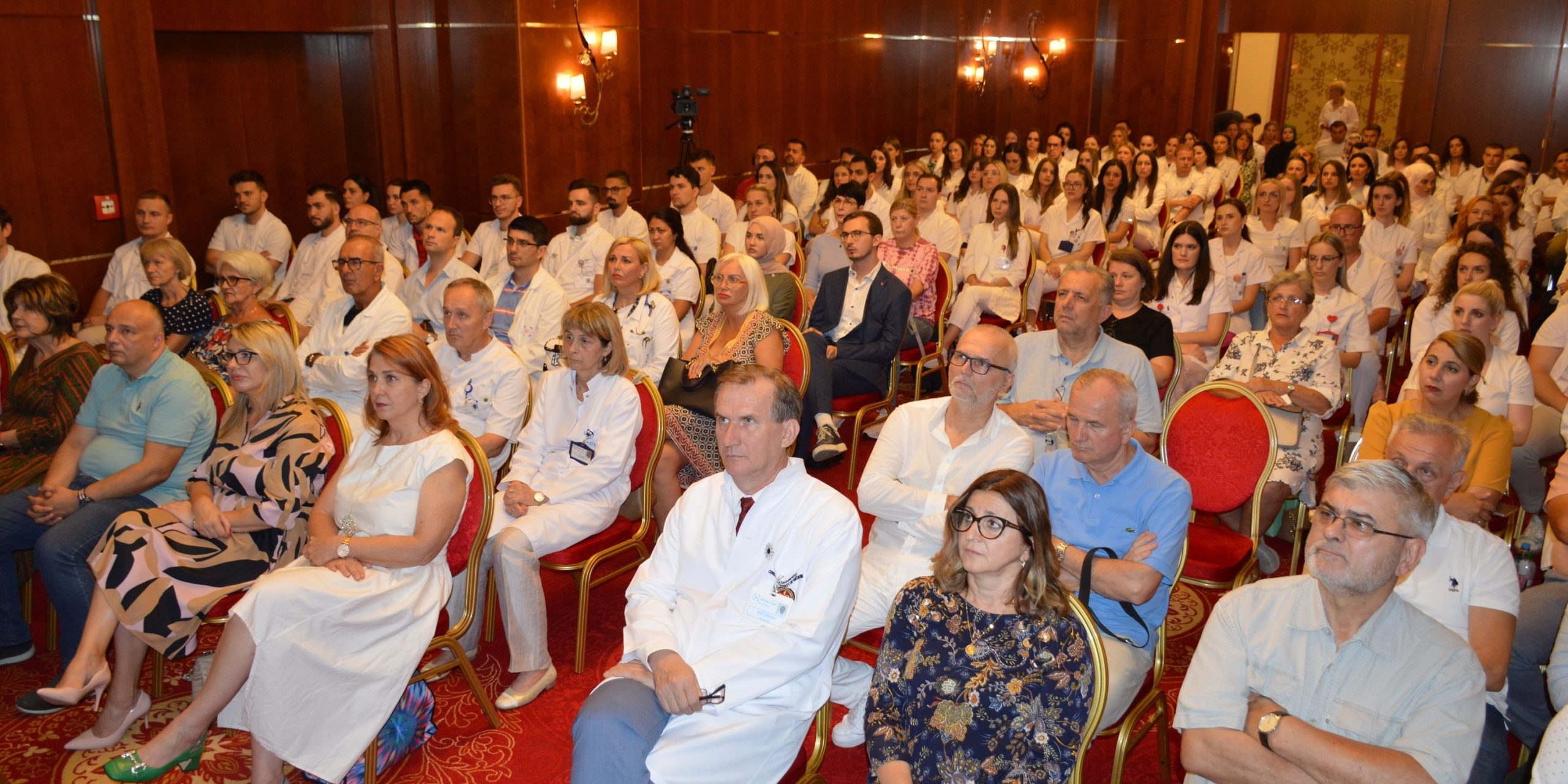To promote the culture of remembrance of the genocide against Bosniaks in the UN-protected area of Srebrenica, the University Clinical Center Tuzla organized lectures on “War Surgery” and “Testimonies from the Bosniak Genocide Mass Graves”. The sessions featured unique insights from distinguished speakers: Prof. Dr. Ilijaz Pilav, a war surgeon in Srebrenica; Prim. Dr. Fatima Klempić- Dautbašić, a war doctor and participant in the ‘Path of Salvation’; and Amor Mašović, President of the Federal Commission for Missing Persons.
Prof. Dr. Šekib Umihanić, Director of the Tuzla University Clinical Center, underscored the critical need for ongoing institutional efforts to foster a culture of remembrance regarding the Srebrenica genocide.
“Institutionalized and continuous commemoration of these sufferings is crucial,” he emphasized. “Failing to do so risks the recurrence of such tragic events. The doctors and nurses who endured the tragedy of Srebrenica performed the most demanding surgical procedures without anesthesia. They resolved not to leave the war hospital until every last wounded person had been cared for, showing unwavering dedication even at the risk of their own lives. The extraordinary efforts of the medical staff in Srebrenica demonstrate that the impossible has no bounds. These events, revisited today, compel us to remember and highlight these tragic occurrences daily. As organizers, our objective was to illuminate the truth of the genocide against the Bosniaks of Srebrenica through the lens of the medical profession,” stated Prof. Dr. Umihanić.
As the president of the organizing committee of the International Symposium on Strategic and Social Research titled “Genocide of Bosniaks in Srebrenica – Exile, Genocide, and Migration,” held last year at the University of Tuzla, Prof. Dr. Šekib Umihanić proposed that Prof. Dr. Ilijaz Pilav, Assistant Professor Dževad Džananović, and Primarius Dr. Fatima Klempić Dautbašić be invited as guest lecturers in the regular curricula and academic programs for medical students in Bosnia and Herzegovina and Türkiye, spanning undergraduate, postgraduate, and doctoral studies.
As lecturers, they would have the opportunity to share their wartime experiences, enriching the education of students and young doctors on emergency medical care. Furthermore, their insights would play a crucial role in disseminating the truth about the genocide against the Bosniaks of Srebrenica.
One of the lecturers was Amor Mašović, who serves as the president of the Federal Commission for Missing Persons. Under his leadership until 2007, the commission located over 370 mass graves, comprising around 3,000 joint and individual graves, from which approximately 18,000 remains of missing war victims were exhumed.
Despite being targeted at young doctors from the University Clinical Center Tuzla, the lectures on War Surgery drew such immense interest that the hall was filled to capacity.







